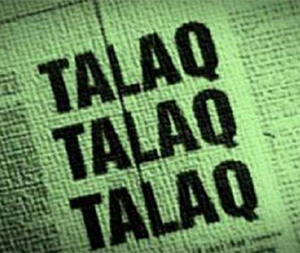New Delhi, Apr 11: The Prime Minister Narendra Modi led union government of India has told the Supreme Court that the practices of ‘triple talaq’, ‘nikah halala’ and polygamy impact the social status and dignity of Muslim women and deny them fundamental rights guaranteed by the Constitution.

In a fresh written submission filed before the apex court, the government has reiterated its earlier stand and said these practices render Muslim women “unequal and vulnerable” as compared to men of their community as well as women belonging to other communities.
“The practices which are under challenge, namely, triple talaq, nikah halala and polygamy are practices which impact the social status and dignity of Muslim women and render them unequal and vulnerable qua men belonging to their own community, women belonging to other communities and also Muslim women outside India,” the Centre said.
“There are unreasonable classifications which arise from practices such as those under challenge in the present petition, which deny to Muslim women the full enjoyment of fundamental rights guaranteed under the Constitution,” it said.
The apex court had on March 30 observed that practices of ‘triple talaq’, ‘nikah halala’ and polygamy among Muslims were important issues involving “sentiments” and a Constitution bench would hear the pleas challenging these from May 11. The Centre, in its written submission, has termed these practices as “patriarchal values and traditional notions about the role of women in society” and said that “the right of a woman to human dignity, social esteem and self-worth are vital facets of her Right to Life under Article 21”.
“Gender inequity has ripple effect on the rest of the community, preventing it from partaking in full, liberties guaranteed by a modern Constitution,” it said. Seeking to declare these practices as unconstitutional, the government has said reforms in Muslim personal law have not taken place for over six decades in the past and Muslim women, who comprises eight per cent of the population, have remained “extremely vulnerable” due to fear of instant divorce.
“Even though it may be true to say that only some women are directly and actually affected by triple talaq and polygamy, the fact remains that every woman who is subject to the said law lives under threat, fear or prospect of these practices being invoked against her, which in turn impacts her status, her choices, her conduct and her right to life with dignity,” the Centre has said.
It has also raised a fundamental issue and said in a secular democracy, whether religion can be a reason to deny equal status and dignity, which is available to women under the Constitution. “The conferment of a social status based on patriarchal values or one that is at the mercy of menfolk is incompatible with the letter and spirit of Articles 14 and 15,” it said.
“Practices such as polygamy cannot be described as being sanctioned by religion in as much as historically, polygamy prevailed across communities for several centuries including the ancient Greeks and Romans, Hindus, Jews and Zoroastrians. It had less to do with religion and more to do with social norms at the time,” the submission said. Influential Muslim organisations like the All India Muslim Personal Law Board (AIMPLB) have opposed the court’s adjudication of these matters, maintaining these practices stemmed from the Holy Quran and were not justiciable.
Several Muslim women have challenged the practice of ‘triple talaq’ in which the husband, quite often, pronounces talaq thrice in one go, sometimes over phone or text message. ‘Nikah halala’ is a practice intended to curb incidence of divorce under which a man cannot remarry his former wife without her having to go through the process of marrying someone else, consummating it, getting divorced, observing the separation period called ‘Iddat’ and then coming back to him again.
The apex court had earlier said it would decide issues pertaining to the legal aspects of the practices of ‘triple talaq’, ‘nikah halala’ and polygamy among Muslims but would not deal with the question whether divorce under Muslim law needs to be supervised by courts as it falls under the legislative domain.
The Centre had on October 7 last year opposed in the apex court the practice of ‘triple talaq’, ‘nikah halala’ and polygamy among Muslims and favoured a relook on grounds like gender equality and secularism. The AIMPLB had told the court that pleas challenging such practices among Muslims were not maintainable as the issues fell outside the realm of judiciary.
The apex court had taken suo motu cognizance of the question whether Muslim women faced gender discrimination in the event of divorce or due to other marriages of their husband.







Comments
Add new comment